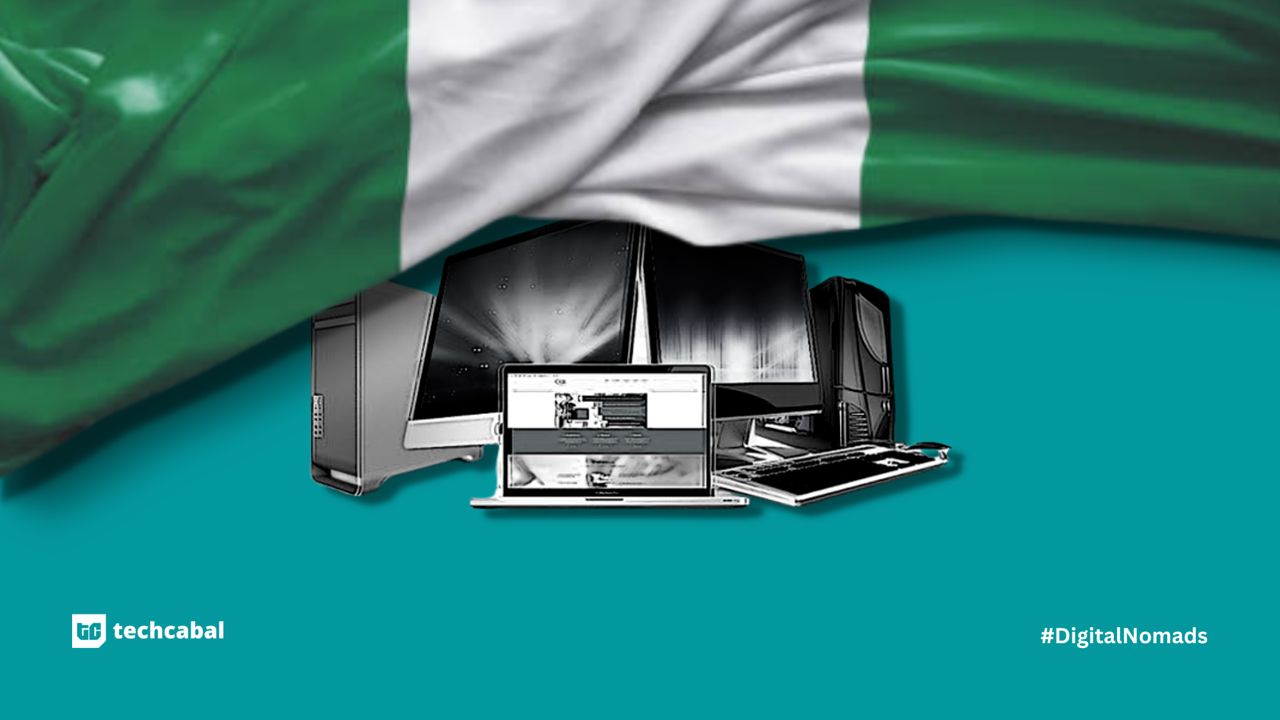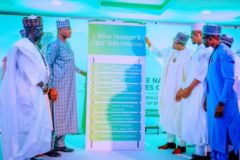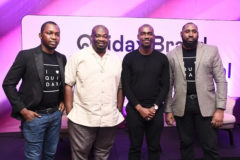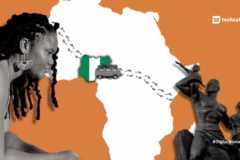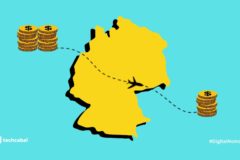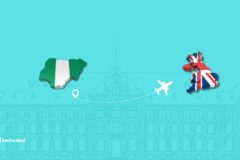Career transitioning is difficult for professionals. While inertia holds down many, some still summon the courage to launch new careers. This is usually because the gains of such transitions can be enticing, especially when moving to a high-earning or fulfilling job. In the past few years, many Africans have entered Africa’s growing tech scene in droves, taking up opportunities, learning on the job and eventually securing roles in the global tech market.
A sure way to succeed in the ever-changing world of tech is to find roles that suit one’s archetype, skills and passion.
Subomi Salami is a prime example of a career transition expert, as she has held roles in different fields, from management consultancy to product marketing to product management. Salami studied economics at the university and was on her way to becoming an economist or accountant when she started taking internships. In her second year at the university, she landed a management consultancy internship at KPMG, and by the next year, she secured a marketing internship at Google. She enjoyed Google’s work environment and the perks and became fascinated with the tech world. Soon after, she decided to pursue a career in tech.
However, after she graduated from University, getting a job at a well-known tech company wasn’t a walk in the park. In the meantime, she got a job as an account manager at Softcom, a Nigerian tech solution company, where she sold the company’s tech tools to clients looking to scale.
While at Softcom, she learned about product management from a friend and became interested in switching to that field when she did more research on what it entailed. However, she didn’t know how to. Eventually, she found out about Meta (formerly Facebook)’s Rotational Product Management (RPM) Programme—an 18-month programme that allows professionals without degrees or tech industry experience to transition into project management at Meta—and applied. After weeks of rigorous preparation, she aced the job interviews and got the job.
Salami, now working from Meta’s office in London, is grateful for her career transition. Along the way, she was able to move countries, multiply her earnings, and improve the quality of her life. We caught up with her to discuss her process of transitioning into the different roles she has held.
How did you get into Meta?
Back in January 2020, at the beginning of the year when everyone was planning out their lives, I doubled down on my job applications. I was interviewing for three product marketing roles at Google, thanks to the connections I made during my internship. Then COVID happened in March and Google paused my applications. But I was pretty optimistic I would get one of those roles. During COVID, I was working in a sales role, but it required meeting people so sales were low, especially in March, April and May. I had a lot of time on my hands so I continued applying for jobs.
I had heard about product management, but I wasn’t really sure what I needed to do to become a product manager. It sounded like a more interesting role than product marketing, which I had experience in. I started trying to check how I could work as a product manager. Because I’ve always had this goal to start my career in big tech companies and then figure out things from there, I started applying for product management roles at Google and Facebook (now Meta). I applied for Meta’s Rotational Product Management Programme (RPM), went through a three-stage interview process, got an employment offer in October 2020, and resumed in June 2021.
What were the roles you held before Meta?
My first ever job was as a management consultant intern at KPMG, after which I joined Google as a product marketing intern. At Softcom, I was a tech salesperson, so I worked with clients and sold the company’s products. When I joined Softcom, I was asked if I wanted to work in sales or marketing, but despite having experience in marketing, I chose sales because I wanted something that would allow me to speak with random people and build some of the soft skills that I wanted to have. I also loved the person who was heading the sales team, so I wanted to learn from him.
How do students stand out and snag high-level internships as you did?
The first thing is research, a lot of people don’t have access to information. A lot of people don’t know there is a Google internship that happens every year. It’s the lack of access to information that people need to combat first. The second thing I’ll say is to become an interesting person. You can do this by reading books, watching documentaries, and TV shows and learning things outside of your course. It will help you have good conversations because, at the internship level, a lot of my interviews were very conversational. The only reason why those conversations were interesting was that I knew certain things. So, it is good to have knowledge about different topics and random things, it allows you to be well-rounded.
Was that the same for the Meta interview?
It was a bit different. Those conversations still happen and still help. But a product management interview is similar to a case interview. So they ask you specific questions. There are two types of questions you can be asked: product sense and product execution. A product sense question might be a question on how you would build an apartment building for blind people. But of course, the question will be related to the work of the company you are applying to. You have to figure out how you scale things down, prioritise, and identify risks. Overall, the conversations typically happen within the confines of these questions.
What piqued your interest in product management?
To be honest, I just thought it was a cool job. I think back in 2020, I met a product manager in Nigeria and got to know about product management, but I didn’t know what he did. Then we had a conversation and he told me about his job. I felt it was cool and decided that it was what I wanted to do. I started doing more research into it. While working at Softcom, I always wanted to move closer to the tech part of things. But l was not technical at all. I initially thought product managers have to be super technical. I mean, if you’re working with engineers, you probably have to know how to code or understand some of these programming languages, or maybe you have a computer science degree so that you can understand their work. When I spoke with my product manager friend, I realized that there’s so much more to product management besides being technical. It doesn’t hurt to be technical but it is only a small part of the job. The role became more appealing and sounded like a good place to be in tech. Moreover, I was getting tired of sales and marketing.
How then did you make your transition to product management?
Meta’s RPM programme is a good way to transition into product management, but it’s hard to get into. When I applied, I didn’t think I would get in. It was at the bottom of my list and I applied to make sure I covered all bases. My initial plan was to transition internally and work as a product manager for at least a year or switch workplaces to work as a product manager within Nigeria or study for a tech-related Master’s and then go on to become a product manager.
Those are long paths
Yeah, that was the long path. But that was all I could see. I really wanted to leave Nigeria and I wasn’t getting a job. So I thought of doing a Master’s degree. At the bottom of the list was getting a job. I don’t know why I stood out in the resume or CV stages, but it helped that I did practice a lot, as I had never done a product management interview before. Something I believe is that when you want something really bad, it shows. I practiced with a lot of people and the people I know that got in were those that wanted it really bad and did lots of practising as well. Since I had done a lot of interviews in the past from my job search, I was pretty confident with the idea of interviews. I had learned basic interviewing etiquette and just kind of how to hold the interviewer’s attention.
How was settling outside the country and into a Big Tech company?
It was tough at first because it was a big change, even though I felt it was less tough because it was something that I had been anticipating for quite a while. It was tough because I had a new job in a new company, in a role I had never done before, in a place I had never lived before. There were a lot of new things and adapting to the changes that brought took a while. Most of my immediate family still lives in Nigeria. I was homesick for a bit. I went back home after five months. But making friends wasn’t difficult for me. A lot of my friends from Covenant had moved here as well, for school and jobs. So it wasn’t that hard to make friends even though the building of that community was slow. But I’m at the point where I’ve built a strong community here and I don’t feel lonely. In terms of my career, it was hard, because, for the first few weeks or months, I could not tell what a product manager did. I was so confused. The RPM programme turned out to be the best way to transition because there was a lot of support to figure out things.
How did it help your career financially?
Using ₦750 Naira to £1 as the exchange rate, I would say I multiplied my earnings by at least 12 when I moved. Although, I will say money was not my biggest motivator when I was trying to get the job. If money was my only motivation, I probably wouldn’t be as passionate about product management because there are other easier ways to make money than being a product manager at Meta.
You sound like you enjoy your current job.
Yes, definitely. I don’t think there’s anything I could be doing as a job besides this. Maybe if there was an option of not having a job, I might consider it. I haven’t seen any other roles that align with my natural skills: conflict mediating, talking to people, providing clarity and being proactive.
What would you say is the best thing about your job and working at Meta?
The best thing about being a product manager is that I’m the person that’s responsible for making sure we’re working on the most important thing for the user. That we’re constantly thinking back to who we’re building for, and why we’re building what we’re building. I feel like that’s such an important role. In a lot of companies, very few people do that. I was going to say the best thing was talking to people but it can get tiring. I do like that, but it’s not the best thing, it’s a good part. You get to speak to so many smart people from different backgrounds and build relationships. You make friends on the job because you have meetings with some people once or twice every week. The best thing about working at Meta, it has changed my life. I had always wanted to work in this type of environment. The culture here is very inclusive, welcoming, open and transparent. The benefits are great, you feel like you are taken care of.
What advice do you have for people who want to make a similar transition?
I will say always go the extra mile because most people don’t, so this already cuts out a lot of people and leave very few people to compete. If you really want something, do your research, and go the extra mile, you can switch from being an account manager, or a content writer to whatever role you want in tech. I transitioned from a regular account manager and I think anyone can do it.
When I was applying for this job, I remember attending the information session. I also reached out to the recruiter about five days after I applied and hadn’t heard back. Then the recruiter responded to my message and said she had sent me an email for an interview. I felt like she saw my message, checked for my application, and probably liked my CV and felt I was a good fit. Most people don’t do that. Those were extra steps I took because I really wanted the job. After I got the interview invite, I did over 50 mock interviews. And because my favourite mock partners were in other time zones, I was sleeping late. Just to be clear, I don’t think anyone needs to do that number of mocks. But it shows how much I wanted it. I don’t know if doing 50 mock interviews helped me get the job but it probably helped me get more comfortable with interviewing and with the interview format. And I got the job, right?
If people see my process, they would understand what it means to want something. A lot of people say they want to transition into tech, get a relocation job or become a leader in their field, but the truth is that they don’t want it badly enough. Because if they do, they will figure out how ways to achieve these goals.
If you enjoyed this article, please share it with your network on Twitter, WhatsApp, LinkedIn, Facebook, and Telegram.
We’re open to applications for Digital Nomads from across Africa. If you’re an African that is working or studying abroad or travelling the world, or someone that just transitioned into tech, kindly fill out this form.







